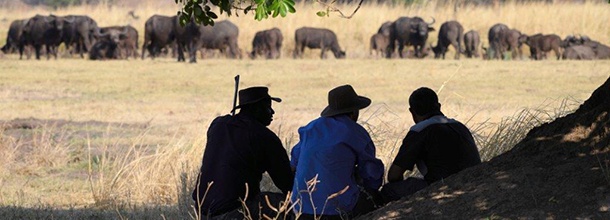People often forget Zimbabwe when it comes to visiting Africa; I myself am guilty of this. Over the years, Zimbabwe has rightly been on every human rights watch-list imaginable. However, things have improved. Zim has a lot to offer the intrepid traveller. There is a movement, and it is tourism, which thanks to the quality of ground operations, is benefiting local communities, wildlife and the ecosystems upon which both rely.
‘Although the people of Zimbabwe have been through seriously tough times, everyone was incredibly friendly, passionate and loyal. There is an honest sense of unity there, to want to show the world the ‘real Zimbabwe’. I was really blown away by it.’ – Hannah Rayner on her first trip to Zimbabwe.
Zimbabwe is a breath-taking country, with varied landscapes and ecosystems, which include the UNESCO World Heritage site Mana Pools National Park (one of five), based in the lower Zambezi River region. Then of course there is the Vic Falls; not to mention the sheer number of Elephant that reside in Hwange National Park, the largest Park in Zim and in the top ten of largest parks in Africa.
These are not the only surprising things about Zim to those who may overlook it. It is true to say that it also produces highly-skilled guides, due to rigorous and lengthy training, which is some of the toughest teachings in Southern and Eastern Africa. This is not only because they have to proceed with a four-year certification process; but it has one of the most difficult guide license procedures anywhere in Africa.
To start; you need to be a Zimbabwean citizen or resident. Then the individual will need to pass their Learner’s theory examination, where their knowledge of the environment, the ecology, vegetation, geography, birds and wildlife, first aid, firearms and ballistics, as well as environmental and tourism laws, are tested.
Next, trainee guides will spend a minimum of two years being tutored and working under a fully licensed safari guide. Here, they will gain extensive knowledge of working in the bush and guiding clients through Zimbabwe’s National Parks. This will include walking safaris, game drives and usually some form of hunting safaris.
Finally, he or she will need to pass a very tough, week-long practical examination, to ensure his/her guiding, knowledge and firearm skills are in order, to earn their Professional Safari Guide License. All examinations are set by the National Parks & Wildlife Management Authority and overseen by the ZPHGA (Zimbabwe Professional Hunters and Guides Association), which assists in the training and examining of professional safari guides.
Most guides will also choose to specialise in a particular field, such as botany or birding. Overall, the entire professional course takes 5-10 years; comparable with studying for a Phd at University.
‘Although we continually learn from every day spent in our Parks, Reserves and Wild Places, this training guarantees a level of awareness and responsibility by those committed to showing guests those very Parks, Reserves and Wild Places. Guiding is a passion and our training is what allows that passion to flourish.’ – Graeme Lemon, Zimbabwean guide, Country Manager for Wild Expeditions.
These dedicated guides not only have to study the wildlife and environment to a profound level, but they then have to apply and adapt all their knowledge to suit their guests’ interests as well.
And so with such experience tucked under its sleeve, along with incredible wildlife and varying eco-systems, Zimbabwe has much to give.
